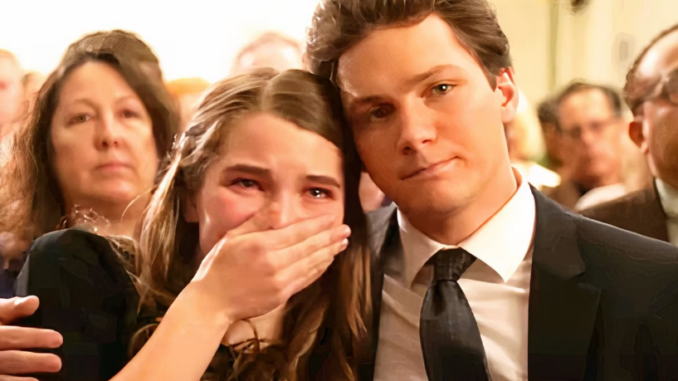
The Evolution of Young Sheldon: From Premise to Family Drama
Young Sheldon has journeyed from its initial premise as a prequel to The Big Bang Theory to become a heartfelt exploration of the Cooper family. While the show initially focused on Sheldon Cooper’s childhood struggles as a child prodigy, it later shifted gears, allowing other characters to take center stage. In fact, one of the show’s most impactful episodes demonstrates why this evolution was not just necessary but beneficial.
The Initial Premise: Sheldon’s Trials in Small-Town Texas
When Young Sheldon first premiered, viewers were introduced to the trials of a socially awkward genius navigating life in East Texas. The setup promised to explore the quirky experiences of a young Sheldon, surrounded by family, teachers, and baffled neighbors. However, as the series progressed, it became clear that Young Sheldon had much more to offer than just Sheldon’s escapades.
A Game-Changing Episode: The Season 2 Finale
A Heartfelt and Poignant Storyline
The episode titled “A Swedish Science Thing and the Equation for Toast” stands out as one of the best in the series. This episode takes a poignant turn when Sheldon plans a party to celebrate his co-worker Dr. Sturgis’s potential Nobel Prize win. Unfortunately, the announcement comes at 5 AM Texas time, leading to a heartbreaking scene where only Sheldon’s mother, Mary, shows up.
The Impact of Isolation
In this moment, Sheldon grapples with feelings of loneliness and realizes he has no friends. As viewers witness this emotional breakdown, it becomes clear that the life of a child genius is not just filled with laughs—it also comes with profound challenges.
Sheldon’s Social Struggles: A Deeper Insight
More Than Just Humor
The season 2 finale reveals the inherent social isolation that accompanies Sheldon’s genius. While the earlier seasons primarily focused on humor derived from Sheldon’s eccentricities, this episode brought the serious ramifications of his intelligence to the forefront. The contrast between Sheldon’s bright mind and his social struggles provided a deeper, more nuanced understanding of his character.
A Shift in Focus: The Importance of Family
Broadening the Narrative Scope
As Young Sheldon continued, it shifted away from solely Sheldon’s experiences to include his entire family. This broader focus allowed for the development of supporting characters like Missy, Georgie, and Meemaw, enriching the storytelling and offering various perspectives on life in the Cooper household.
Expanding Character Arcs
The introduction of characters such as Dr. Sturgis and Dr. Linkletter not only provided a richer narrative but also allowed for more humorous and relatable situations. Sheldon’s interactions with his family members became central to the show, providing a refreshing change from the first two seasons.
The Impact of Change on Storytelling
How Shifting Focus Saved the Show
By the time Young Sheldon reached its later seasons, it became evident that the show thrived by embracing a broader narrative. The focus on the entire Cooper family provided new dynamics and humor. Characters like Missy and Georgie developed into multifaceted individuals, paving the way for richer storylines that moved beyond Sheldon’s challenges.
Spin-off Opportunities: A Testament to Character Growth
Georgie and Mandy’s First Marriage
The upcoming spin-off, Georgie and Mandy’s First Marriage, illustrates just how much the show has evolved. Once a secondary character, Georgie has become central to the story, demonstrating the series’ ability to adapt and grow.
Missy and Meemaw’s Potential
The potential for spin-offs focusing on other characters, such as Missy or Meemaw, further emphasizes the rich narrative landscape Young Sheldon has created. This shift away from Sheldon-centric storytelling has allowed for deeper character development and exciting future possibilities.
Conclusion: A Beautiful Transformation
In summary, Young Sheldon has transformed beautifully from a series solely focused on Sheldon Cooper’s childhood to a rich tapestry of family dynamics and personal growth. The poignant moments, especially highlighted in the season 2 finale, have deepened our understanding of Sheldon’s character while providing space for others in the Cooper family to shine. As the show moves into its next phase, fans can look forward to more heartfelt stories from this beloved universe.
FAQs
1. What makes the season 2 finale of Young Sheldon significant?
The season 2 finale, “A Swedish Science Thing and the Equation for Toast,” highlights Sheldon’s emotional struggles and the loneliness that comes with being a child prodigy.
2. How did Young Sheldon change over its seasons?
The show shifted its focus from Sheldon’s experiences to include the entire Cooper family, allowing for richer storytelling and character development.
3. What are the upcoming spin-offs related to Young Sheldon?
The upcoming spin-off is titled Georgie and Mandy’s First Marriage, focusing on Sheldon’s older brother.
4. How does Young Sheldon differ from The Big Bang Theory?
While The Big Bang Theory centers on adult characters, Young Sheldon explores Sheldon’s childhood and family dynamics, providing a deeper look at his formative years.
5. Why is Young Sheldon considered a successful spin-off?
Young Sheldon has successfully carved its niche by evolving its narrative focus, developing a strong fan base, and expanding character arcs beyond the original premise.